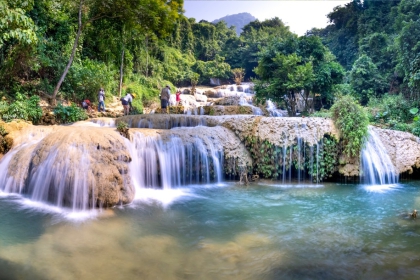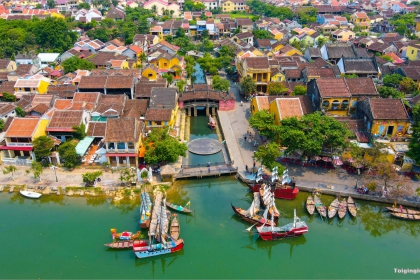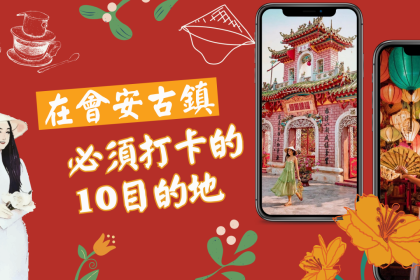Vietnam travel information
For your happy trip, please pay attention to the following matters:
1. Nightlife
The nightlife in Ho Chi Minh City is colorful, and the most popular places are nightclubs, KTVs, coffee shops and dance halls. In recent years, large-scale karaoke bars such as Zhengda, Caesars, and Crystal Palace are all run by Taiwanese businessmen. They have a strong Taiwanese flavor and are often visited by tourists.
Since Vietnam was opened to the outside world, due to the large influx of investors, businessmen and tourists, there have been more and more places for consumption, especially nightclubs and KTVs, each of which is more upscale than the other. There are also counter girls in them, and the phenomenon of partying and singing every night has also increased. It is becoming more and more common, especially in Ho Chi Minh City.
In addition, cafes and dance halls for Vietnamese consumption are interesting places. Cafes in Vietnam do not have elegant storefronts like Taiwan. Usually, it is just a space that can accommodate people, filled with tables and chairs. Video tapes are available for viewing. Therefore, except for the small coffee sign hanging outside, it is dark inside and outside, and some are open-air. Most couples also like to go on dates in this kind of place.
There is "Qing Duo Street" on the Saigon Riverside in Ho Chi Minh City. There are more than 20 such coffee shops in this small street, which shows their popularity. As for dance halls, they usually play popular music live, and there are also dance floors for dancing. These types of venues usually charge tickets, and the cost of drinks or snacks is calculated after entering. In addition, there are five yachts in Ho Chi Minh City that can cruise the Saigon River at night. The boats also provide entertainment such as singing and dancing performances. Basically, in cities outside Ho Chi Minh City and Hanoi, except for a few dance clubs and cafes, there are almost no places to spend money at night.
2. Visas
Vietnam visas can be divided into tourist, business, journalist, official, multiple-entry business and family visits. They are issued by relevant units according to their nature. The validity period can be divided into fourteen days, one month, three months, half a year, etc. , currently there is a Vietnam Economic and Cultural Office in Taiwan that can handle it, or it can be handled by a travel agency.
3.
When customs citizens enter Vietnam, if they carry electronic products such as cameras and V8s, they must fill in the customs form clearly to indicate that it is a personal product and will be brought back after leaving the country. Otherwise, it is easy to leave the country. At that time, I encountered difficulties from the customs.
4. Exchange
Vietnam’s currency unit is called the dong. Over the past seven or eight years, the exchange rate of the Vietnamese dong against the U.S. dollar has remained stable and has not changed much. The current exchange rate is about 1 US dollar can be exchanged for 21.400 dong. Tourists can exchange money at the hotel counter where they are staying; but most of them still do not accept exchanging Taiwan dollars for Vietnamese dong, so it is safer to exchange US dollars in Taiwan first, and then take them to Vietnam to exchange them for Vietnamese dong. . All high-end hotels accept credit cards.
5. The currency
unit is "DONG". 1 US dollar can be exchanged for 22,000 dong. The denominations are 200, 500, 1000, 2000, 5000, 20,000, 50,000, 100,000, 500,000. There is not much difference between the official price and the black market price. You can directly Redeem at the airport, bank or hotel. 1 yuan is equivalent to 3,300 dong.
7. Voltage
220v, round hole socket.
8. The time difference
is 1 hour behind Beijing time.
9. Office hours
are six days a week, 7:30~11:30, 13:30~5:30. They only work for half a day on Saturdays, and administrative agencies have a full day off on Saturdays (except for immigration agencies).
10. The economic
socialist system, under the current reform and opening up policy, encourages foreign investment. Ho Chi Minh City is developing rapidly. However, due to the economic downturn in East Asia in recent years, inflation and unemployment have become serious.
11. Public Security
The security in the urban area is said to be good, but tourists are susceptible to begging from homeless beggars. It is recommended not to give alms to avoid being surrounded by other beggars or even pickpocketing. Mobile stalls selling goods often chase tourists and even make nasty remarks, so don't provoke them. There are also pornographic operations and illegal solicitation in some tourist areas, which are prone to police crackdowns and interference from illegal groups. Da Nang City, Hue, Hoi An, Ha Long, Da Lat City, and Hanoi have very good security. Among them, there are no beggars, no thieves, and no drug addicts in Da Nang City. It can be said that Vietnam is one of the countries with the best security in the world. Hanoi has been listed among the world's peaceful cities.
12. Shopping
Vietnam has a wide variety of traditional handicrafts, which are good tourist souvenirs. The more famous ones are lacquerware, as well as furniture and decorations inlaid with shells. Some of the patterns are rich in ethnic characteristics and can be purchased as home decorations. Although Vietnam has tortoiseshell and ivory handicrafts, in order to protect these animals, tourists are advised not to buy them, and Taiwan Customs will also ban such items.
Female tourists can try bringing back a long gown, a traditional Vietnamese women's dress. The long gown is called "Aodai" in Vietnamese. Wearing a long gown will make people feel much slimmer. Vietnamese women often wear caftans on formal occasions. In Nha Trang, because it is a shell producing area, there are all kinds of shells, and some shells are also carved and have great ornamental value.
Vietnamese dong is the main currency, but U.S. dollars are also accepted. The current exchange rate with the U.S. dollar is 1:2200. However, due to inflation, it is recommended to ask the hotel for Saigon Daily (English) every day to check. You can negotiate prices when shopping, especially at lacquer ware, pearls, wood carvings, clothing, etc.
The tourist shopping store has nothing to do with the local travel agency. It doesn’t matter whether you enter the store or not. Customers can enter the store voluntarily.
13.
There is no hard and fast rule about tipping. The tipping method depends on the quality of service. Vietnamese people earn about US$250 per month. Passengers can measure the amount of tips by themselves. General group of 2-5 people: US$10/person/day, 6-10 people: US$6/person/day, group of 11-15 people: US$4/person/day, group of 15 or more: US$3/person/day . Remember to divide the tip between the tour guide and the driver, the ratio is 2 for the tour guide: 1 for the driver.

















